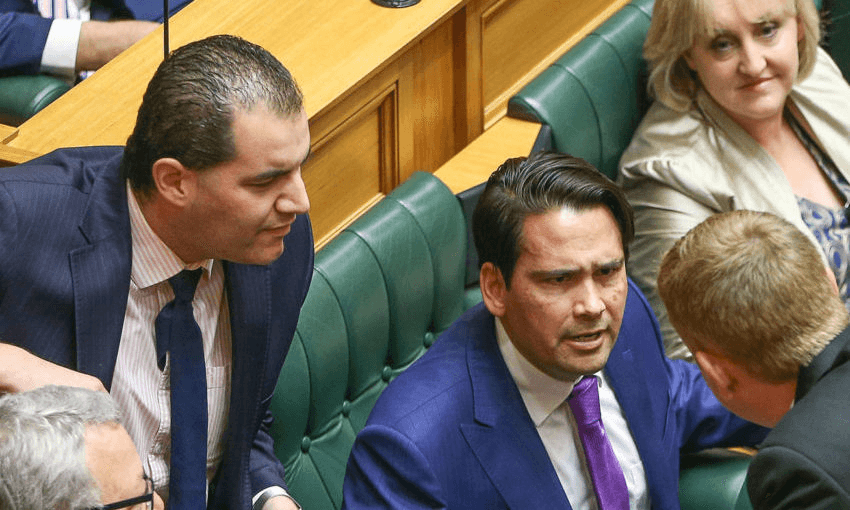A flurry of questions attend the Serious Fraud Office’s announcement it is charging four people in relation to donations, and the answers could have huge implications in election year, writes Andrew Geddis.
The announcement by the Serious Fraud Office that it has filed criminal charges against four people “in relation to donations paid into a National Party electorate bank account” generated a fair bit of political heat, but not all that much light.
First of all, we don’t know what specific charges have been filed, nor against whom. The SFO won’t say, because when the accused appear in court on February 25 they may well seek name suppression. Naming them before they get the chance to do so would render such an application moot, and the SFO doesn’t really want to do the court’s job for it.
We do know that neither the National Party leader, Simon Bridges, nor its secretary, Greg Hamilton, have been charged as they have told us so. Hearing that didn’t surprise me, as I intimated when Jami-Lee Ross first raised his allegations in relation to this matter.
For Bridges to be charged, he pretty much would have to had explicitly told donors something like, “I want you to give my party this money in this illegal way.” Now, much as I know that plenty of inner-city, kombucha drinking liberal types like to hate on our Simon, no political party leader would be that stupid. Not even Simon Bridges.
And the National Party secretary’s legal responsibility really amounts to little more than receiving and recording donations, before passing on limited information about those donations to the Electoral Commission. When doing so, he’s entitled to simply rely on what he’s told by donors to the party without having to try and independently verify that it is the truth. Having met those minimal requirements under the law, he’s then in the clear.
Beyond saying the above regarding who hasn’t been charged with what, further speculation as to who then is left on the potential hook could result in defamation lawsuits – as well as being very unfair to innocent parties. And so there I shall forbear to tread.
Indeed, it should be noted that we don’t even know for certain that the charges filed relate to some alleged wrongdoing with how the donations in question were made to the National Party and not some unrelated matters that the SFO stumbled across while investigating them. Because, as Lester Freemon reminds us, “you start to follow the money, and you don’t know where the fuck it is going to take you.”
That being said, assuming that the charges do indeed relate in some way to the manner in which these donations were made, it represents the first time there have been charges laid against anyone in relation to the funding of a political party in New Zealand. This fact in itself marks the charges as a significant development. Sure, it isn’t anything like $90,000 hidden in a pie crust box in a congressman’s freezer, but it does warn us that we shouldn’t assume our shiny “least corrupt country” badge protects us from the ills that infect other political systems.
Furthermore, the fact no charges may have been laid against them does not necessarily mean that Bridges and the National Party can claim to be completely blameless in this matter. Jami-Lee Ross’s original allegation was that Bridges wanted to have the $100,000 donation paid over to the party in a way that didn’t require disclosure (assumedly to avoid questions about why National was receiving such largesse from the donors concerned).
Sure, that doesn’t mean he meant that the law should be broken; indeed, he most probably didn’t want it to be. There are entirely legal ways that this avoidance of disclosure could have occurred. But it is this desire on the part of political parties and donors alike to avoid the public gazing upon their relationship that ultimately drives stratagems like bundling together individual donations below the legal threshold for disclosure, which easily risk going from tricky-but-legal to breaching of the law.
More generally, the whole affair also demonstrates that our current level of donation disclosure is way too high. Allowing donations to political parties of $15,000 without disclosure allows bundling up of serious amounts of money that the public never gets to see or hear about. That figure came about as the result of a political compromise between Labour and National back in 2010. It now has to be reduced, so that more can be seen about where political parties get their funding from.
But changing that law is for the medium-term future. What of the immediate impact on this year’s election contest? I think that really depends on who has been charged with what, and the degree of culpability that the public assigns to National for being associated with this sort of allegedly unlawful behaviour. Will National be seen as complicit in the alleged offending, or a victim of it?
Also, we should remember that the New Zealand First Foundation is still being investigated by the Electoral Commission regarding how it receives money and its relationship with the New Zealand First Party. If some wrongdoing were to be found there and the matter referred on to the police, will that then cause the public to see this as a case of a plague on all your houses?
So, a lot more questions remain to be answered regarding the SFO’s actions. And those answers may in turn raise a bunch more questions for the National Party, the 2020 election and our political system generally.

